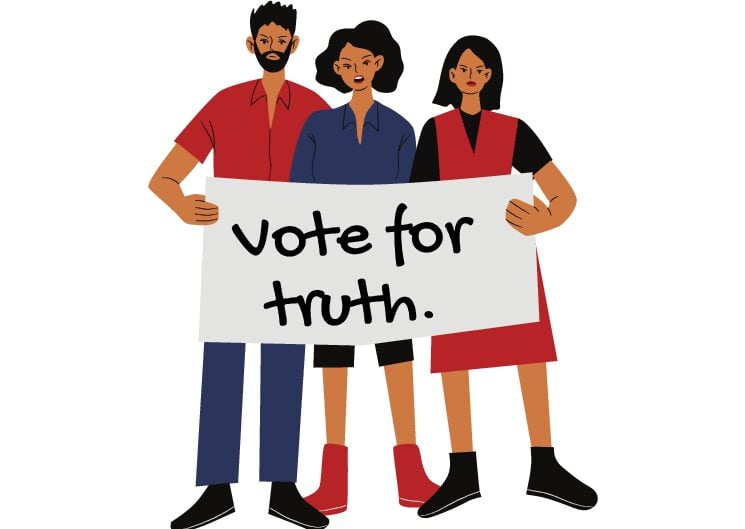We are now in an era of post-truth, an age of disinformation. Political advertising campaigns should be presented in an objective, fair and accessible manner and justified as relevant and effective rather than promoting party political interests but they are clearly not.
What should be done?
- Adopt Truth in Political Advertising legislation similar to that of SA and the ACT.
- Target identifiable political actors who are authors or authorisers of the material in question.
- Make false statements of fact (rather than opinion) subject to the law, as per the provisions under section 113 in SA.
- Require truth in political advertising at all times, not just at elections.
- Apply penalties for publishing, not just refusing to take down offending material.
- Properly resource the AEC to fulfill the role of truth in political advertising watchdog.
- Require candidates to sign a declaration that they have read and understood what the legislation requires of them.
Also, for government advertising:
8. Establish truth in government advertising laws.
9. Ensure party logos do not appear on government announcements.
The ‘No’ campaign on the referendum for recognition of First Nations in the Constitution and a Voice to Parliament clearly lied to the people of Australia, eg. there is no detail, it is driven by the Canberra elite, rights will be taken away, financial compensation will be demanded, it will divide the country. None of it true.
The laws are weak. There is a prohibition on misleading or deceptive publication in Referendum law, s.122, and in the Electoral Act s 329(1) but here’s the get-out-of-jail card: it is not an offence if the person ‘did not know or could not reasonably be expected to have known the matter or thing was likely to mislead an elector…’.
The AEC’s role in spotting misinformation was limited to the mechanics of the Referendum, not the content. There is no other agency with oversight.
It was easy to mislead and deceive and almost impossible to refute the claims made. It polarised and politicised people, delegitimised the electoral system, fed conspiracies and dark prejudices and it deliberately undermined trust in the government – precisely as intended.
Both major parties have indulged in lies – think Labor’s Medicare and the LNP’s death taxes. World-wide there is a tendency to do more of this, think Donald Trump and ‘fake news’. It clearly works. However, being lied to is not acceptable and, according to the Australia Institute’s exit poll for the Referendum, 9 out of 10 voters want truth in political advertising.
There is a long history of unmet promises and laws on truth in political advertising hastily repealed. The Hawke Government introduced the first of these making it an offence punishable by 6 months imprisonment or a fine. It was soon repealed prompting Democrats Senator Michael Macklin to write at the time:
‘It is surely a small price to pay for a better-informed democracy that politicians are required to tell the truth’.
South Australia has had such laws, administered by the AEC, for 40 years. They work and they survived a constitutional challenge. There, the maximum penalty for a natural person is $5,000, $25,000 for a corporation. The ACT banned inaccurate and misleading electoral advertising in 2021.
References:
https://www.auspublaw.org/blog/2022/04/are-truth-in-political-advertising-laws-constitutional
https://theconversation.com/australians-are-tired-of-lies-in-political-advertising-heres-how-it-can-be-fixed-189043 (Recommendations drawn from The Conversation – August 2022, Lisa Hill, Professor of Politics, University of Adelaide)
Joint Standing Committee on Electoral Matters inquiry into 2022 Federal Election:

